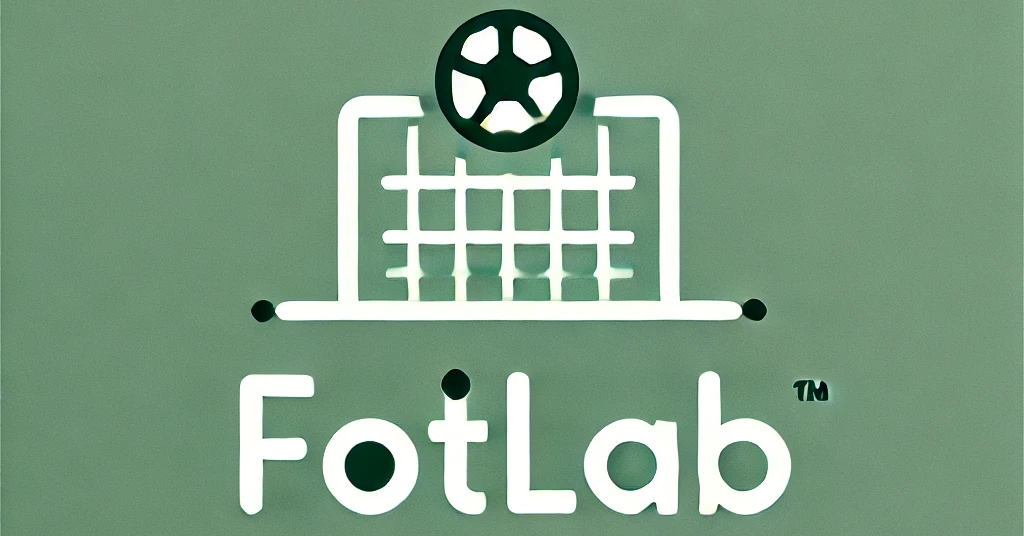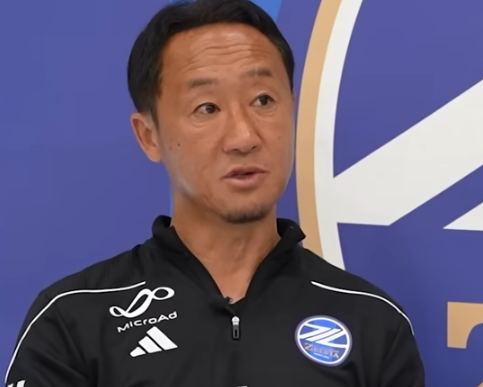結論
黒田監督は、選手個々の特性を最大限に引き出すための細かな指導と、チーム全体の一体感を重視しています。彼のアプローチは、選手の技術的な成長だけでなく、精神的な成長も含まれており、特に試合でのリアリティを追求する姿勢が印象的です。
記事内容
黒田監督は、選手に対して技術や戦術の指導を行う際に、心の部分や思考の整理を重視しています。彼は特に、トレーニングの中でのシミュレーションやリアリティの重要性を強調し、選手たちが試合に向けた準備をしっかりと行えるように指導しています。
また、黒田監督は選手個々の特性を把握し、それに基づいた指導を行うことで、選手たちの成長を促しています。例えば、守備の際には「へそで見る」という独自の方法を用いて、相手の動きをしっかりと把握し、効果的な守備を行うように指導しています。
彼の指導は、選手たちが自分自身で判断し、行動できるようになることを目指しており、そのための基礎をしっかりと築くことに重点を置いています。これは、試合中における選手の自主性を促し、チーム全体のパフォーマンスを向上させるための重要な要素です。
黒田監督はまた、選手同士の連携やコミュニケーションの重要性も強調しており、チーム全体が一丸となって目標に向かうための環境づくりに努めています。このような指導方針は、選手たちの精神的な成長にも寄与しており、彼らが試合での困難な状況に対処できるようになるための基盤となっています。
インタビューの内容と質疑応答
インタビューの内容
黒田監督は、選手たちがトレーニングで行う活動が、試合においてどのように役立つかを常に考えています。彼は、トレーニングの各セッションが試合のシミュレーションであると考え、選手たちにその意識を持たせるよう努めています。また、守備の際には、選手たちが相手の攻撃を未然に防ぐための「へそで見る」技術を教えています。
質疑応答
Q1: トレーニングでのリアリティをどのように確保していますか?
黒田監督: トレーニングでのリアリティを確保するために、試合と同じような状況を再現することを重視しています。例えば、ミニゴールを使用する練習では、実際の試合のようなプレッシャーをかけ、選手たちが試合中に遭遇する可能性のあるシナリオを想定します。これにより、選手たちはトレーニング中に本番さながらのリアリティを感じることができ、試合に向けた実践的な準備ができます。また、トレーニングの進行中に頻繁にセッションを止めて説明を加え、選手たちがその場で何がうまくいったか、何が改善すべきかを理解できるようにしています。こうした取り組みを通じて、選手たちが試合においても自然に適応できるようにしています。
Q2: 「へそで見る」とは具体的にどういうことですか?
黒田監督: 「へそで見る」とは、守備の際に選手がボールと相手の両方を視野に入れるための技術です。この技術は、ボールに集中しすぎることなく、相手の動きや位置を常に把握することを目的としています。具体的には、選手はボールと相手選手の間に自分の身体を置き、両者を視界に入れながらプレーします。これにより、相手の動きを予測しやすくなり、適切なタイミングでの対応が可能になります。例えば、クロスボールが上がる際に、相手選手がどのように動くかを予測し、先手を打ってポジションを取ることができます。この方法は特に空中戦やセットプレーの守備において効果的であり、相手に自由にプレーさせないための重要な要素となります。
Q3: 選手たちが自主的に考え行動するようにするにはどうすれば良いですか?
黒田監督: 選手たちが自主的に考え行動するためには、まず基本的な戦術や技術の理解を深めることが必要です。しかし、それ以上に重要なのは、選手が自らの判断で適切な行動を取れるようにすることです。これは、トレーニング中にさまざまなシナリオを設定し、選手たちにその中で最善の判断を下す練習をさせることで実現されます。例えば、攻守の切り替え時にどのように動くべきか、どのタイミングでパスを出すべきかを考えさせることで、選手たちは自らの判断力を養います。また、失敗を恐れずに挑戦する環境を整え、選手たちが自分自身で考えたプレーを実践できるようにすることも重要です。こうしたアプローチにより、選手たちは試合中に状況を分析し、最適な行動を自ら選択する能力を身につけていきます。
Conclusion
Coach Kuroda places great emphasis on maximizing the unique attributes of each player while fostering a strong sense of unity within the team. His approach focuses not only on technical development but also on the mental growth of the players, particularly emphasizing the importance of realism in training.
Article Content
Coach Kuroda highlights the importance of mental aspects and thought processes in his coaching, alongside technical and tactical instruction. He stresses the significance of simulation and realism in training, ensuring that players are well-prepared for actual matches.
Kuroda is adept at recognizing and nurturing the unique characteristics of each player, tailoring his coaching to foster their growth. For instance, his unique method called “seeing with the belly button” helps players effectively monitor and react to their opponents’ movements during defense.
His coaching philosophy aims to cultivate players who can think and act independently, a crucial factor for enhancing the overall performance of the team. This foundation helps promote autonomy in decision-making during matches, leading to improved team dynamics and outcomes.
Additionally, Kuroda emphasizes the importance of player collaboration and communication, striving to create an environment where the entire team works cohesively towards common goals. This approach also contributes to the players’ psychological development, equipping them with the resilience needed to handle challenging situations during games.
Interview Content and Q&A
Interview Content
Coach Kuroda consistently considers how the activities in training benefit players during matches. He views each training session as a simulation of the game, instilling this mindset in his players. Additionally, he teaches defensive techniques such as “seeing with the belly button,” which helps players maintain a favorable position by accurately tracking the movements of their opponents.
Q&A
Q1: How do you ensure realism in training?
Coach Kuroda: To ensure realism in training, we focus on replicating game-like scenarios as closely as possible. For example, during drills using mini-goals, we apply pressure similar to that in actual games, simulating situations players may encounter. This approach helps players experience real-game pressure during training, allowing them to prepare practically for matches. We often pause sessions to explain what is going well and what needs improvement, helping players understand and adapt on the spot. This practice ensures that players can naturally adapt to various situations during matches.
Q2: What exactly does “seeing with the belly button” entail?
Coach Kuroda: “Seeing with the belly button” is a defensive technique where players keep both the ball and the opponent in view, without over-focusing on one or the other. This method helps players maintain a balanced perspective, allowing them to position themselves advantageously in defensive situations. Specifically, it involves placing oneself between the ball and the opponent, maintaining both in the field of vision. This technique enhances a player’s ability to predict the opponent’s movements and respond appropriately. For instance, when a cross is delivered, players can anticipate the opponent’s positioning and preemptively secure an advantageous spot. This approach is particularly effective in aerial duels and set-piece defenses, as it prevents the opponent from executing their plays freely.
Q3: How can players be encouraged to think and act independently?
Coach Kuroda: To encourage players to think and act independently, it is crucial to first ensure they have a solid grasp of basic tactics and techniques. However, the key aspect is fostering their ability to make appropriate decisions on their own. This is achieved by setting up various scenarios during training and having players determine the best course of action in each case. For example, players are encouraged to think about their movements and timing during transitions between offense and defense, honing their decision-making skills. Additionally, creating an environment where players feel safe to take risks and make mistakes is essential. This fosters a mindset where they can experiment with their ideas during training, which in turn builds their confidence and competence to analyze and make decisions during actual matches.



